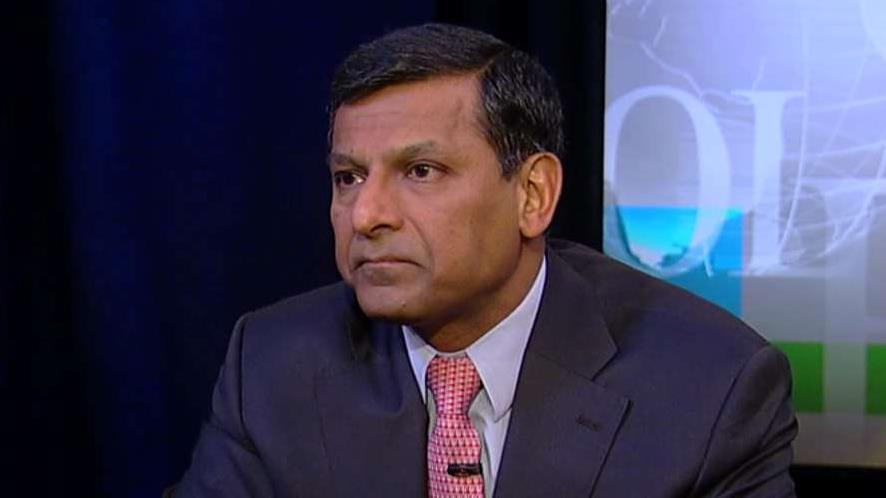How to save capitalism
Capitalism is in trouble and not just from the threat of socialism that’s gaining traction in American political circles, according to University of Chicago economist Raghuram Rajan.
“The fundamental strength of capitalism is providing opportunity for all,” Rajan said on Friday. “And what’s been changing is that it’s not doing that anymore.”
Rajan, a former head of India’s central bank, told “WSJ at Large” host Gerry Baker that he sees several factors causing this failure.
“One, as you get technological change, it requires more and more skills to get a good job,” he said. “And unfortunately there’s distributional skills across the workforce and some people get those good jobs, others don’t. That leads to a second problem, that in fact growth is focused now on the places where there are people with those skills -- the big cities on the coastal areas.”
Rajan noted that as the interior of the country loses jobs to the coasts, there's an increase in the breakdown of society there.
“In the areas that are declining, the ability to get those skills to get the good jobs is also vanishing because the schools are deteriorating in quality,” he said. “Social structure is breaking down. More teenage pregnancies, more families are broken, much harder for children there to get a foot up on the steps that lead to good jobs.”
Rajan’s solution? Look beyond government and markets -- which have been the traditional sources for making capitalism work better -- and focus on the community.
“It prepares you for the markets and supports you if the markets fail,” he said. “But the other thing the community does is it becomes a building block for democracy. And what I argue is these populist protests…demand from capitalism equal opportunity. [They] say, ‘We’re not getting it, please see what’s going wrong and figure out how to restructure.’”
Rajan, author of the book, “The Third Pillar: How Markets and the State Leave the Community Behind,” makes the case that the community can do what the federal government cannot.
“The state is run from Washington. Its policies are usually one-size-fits-all,” he said. “And the real problem today is the divergence in economic outcomes and economic futures…San Francisco looks very different from Steel City, Illinois.”
CLICK HERE TO GET THE FOX BUSINESS APP
And that divergence requires us to think in a new way.
“We need different answers,” he said. “Those answers come locally….We don’t know the answers sitting in Washington...So what I would love to have is a kind of civic nationalism, which is about the greatness of the nation and its values but lets us also encourage more sort of self-direction. More community, actually.”




















